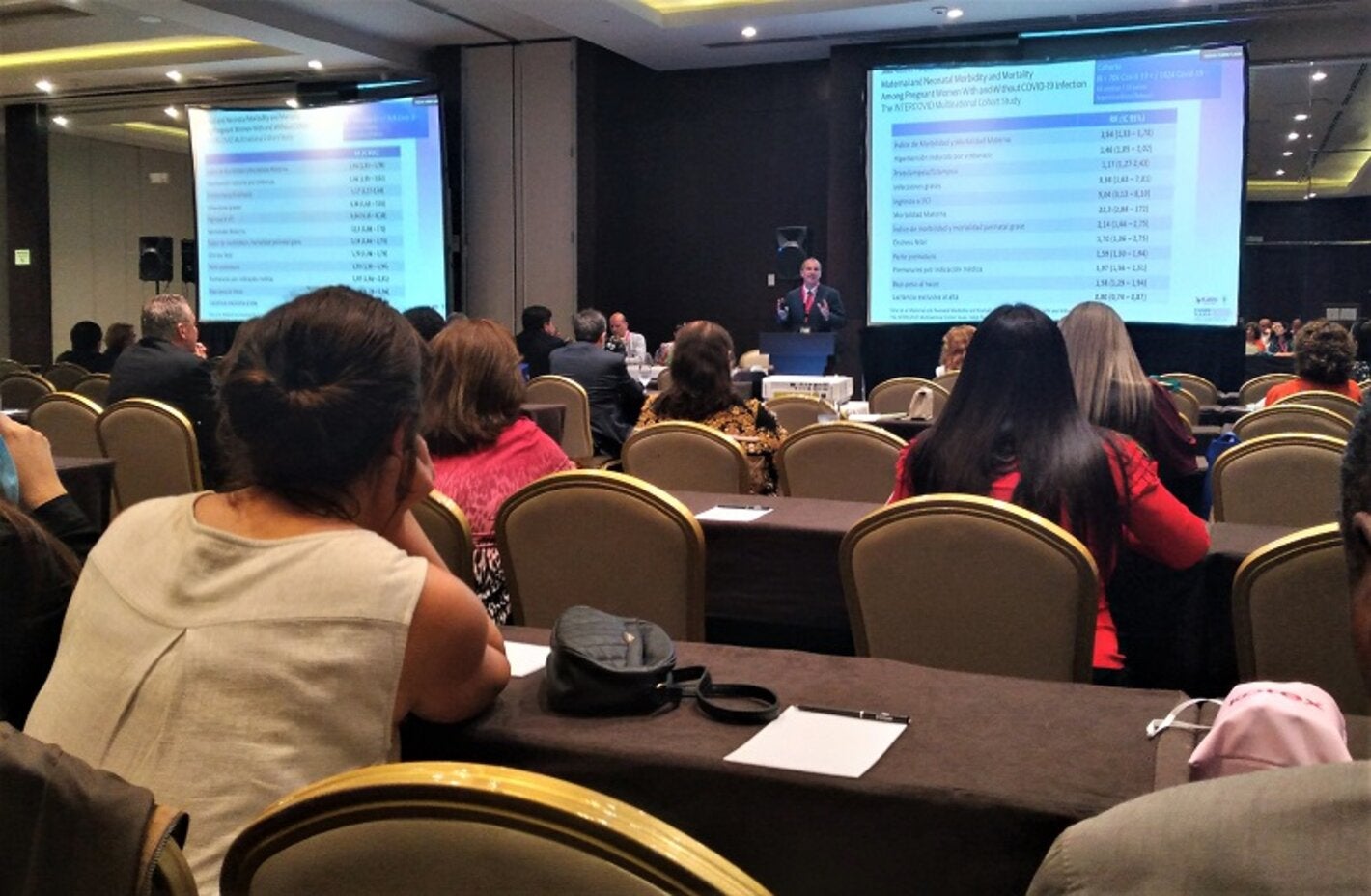
Montevideo. August 30, 2022. From 25-27 August, the 2nd FLASOG Summit was held to discuss the sexual and reproductive health of Latin American women in the post-pandemic period.
Dr. Suzanne Serruya, Director of the Latin American Center for Perinatology - Women's and Reproductive Health (CLAP/WR) of the Pan American Health Organization (PAHO/WHO), attended as moderator of the Post Covid-19 Maternal Mortality symposium.
During the symposium, CLAP/WR’s Regional Advisor on Maternal Health, Dr. Bremen De Mucio, commented on the impact of the pandemic on pregnant women and particularly on the increase in maternal deaths in all countries of the region. The interruption of services, as well as the collapse of many institutions, had a strong influence on maternal morbidity and mortality. "Thirty-five per cent of patients who were indicated for admission to the ICU were not admitted," said Dr. De Mucio.
The Maternal Health Advisor also pointed out that this situation" moved the region away from the targets set to meet the commitments made in relation to the Sustainable Development Goals (SDGs)", and that it is urgent to work, "not only to reverse these impacts, but also to ensure that pregnant women are not left in this situation of vulnerability facing adverse scenarios".
Dr. Claudio Sosa, international consultant on Maternal Health for CLAP/WR, gave a presentation on vaccines for pregnant women. He mentioned the resistance generated due to the accelerated process in which the vaccines for COVID 19 had to be developed and stressed the importance of obstetricians and gynecologists recommending the use of vaccines. "It is necessary to address misinformation with adequate information". He also said that resources should continue to be allocated to study the effects of vaccines on pregnant women.
Dr. Héctor Bolatti, General Coordinator of FLASOG's Maternal Health Committee, referred to the role of scientific societies during the pandemic in advising health authorities. "We have a transcendental opportunity to modernize health systems, to strengthen and provide greater innovation to the system," he said. Dr. Bolatti presented a survey on the impact of the pandemic on the different scientific societies.
Finally, the head of the Global Health Equity Unit of the Valle del Lili Foundation, Dr. María Fernanda Escobar, referred to the multiple levels at which pregnant women and mothers were affected by the pandemic. She said that the evidence showed that pregnant women are infected, and that the severity is closely associated with the variant of the virus that is circulating. "In addition to the deterioration in healthcare, due to the closure of services and the saturation generated, there was a great impact on women's health due to psychological pressure, stress and the overburden of care." In this regard, she said it is "necessary to study the physical and psychological consequences of the pandemic on mothers".
To conclude, she presented the "Godfather Hospital" initiative, which has been developed in Colombia since 2019 and consists of a strategic alliance between different health centers, through which large centers "sponsor" other smaller or less well-resourced ones. "In this way, talent is generated, as well as a communication network, and there is great telemedicine support that manages to impact on performance and results." "It is necessary to unite, to join forces and to have disruptive initiatives that allow us to



